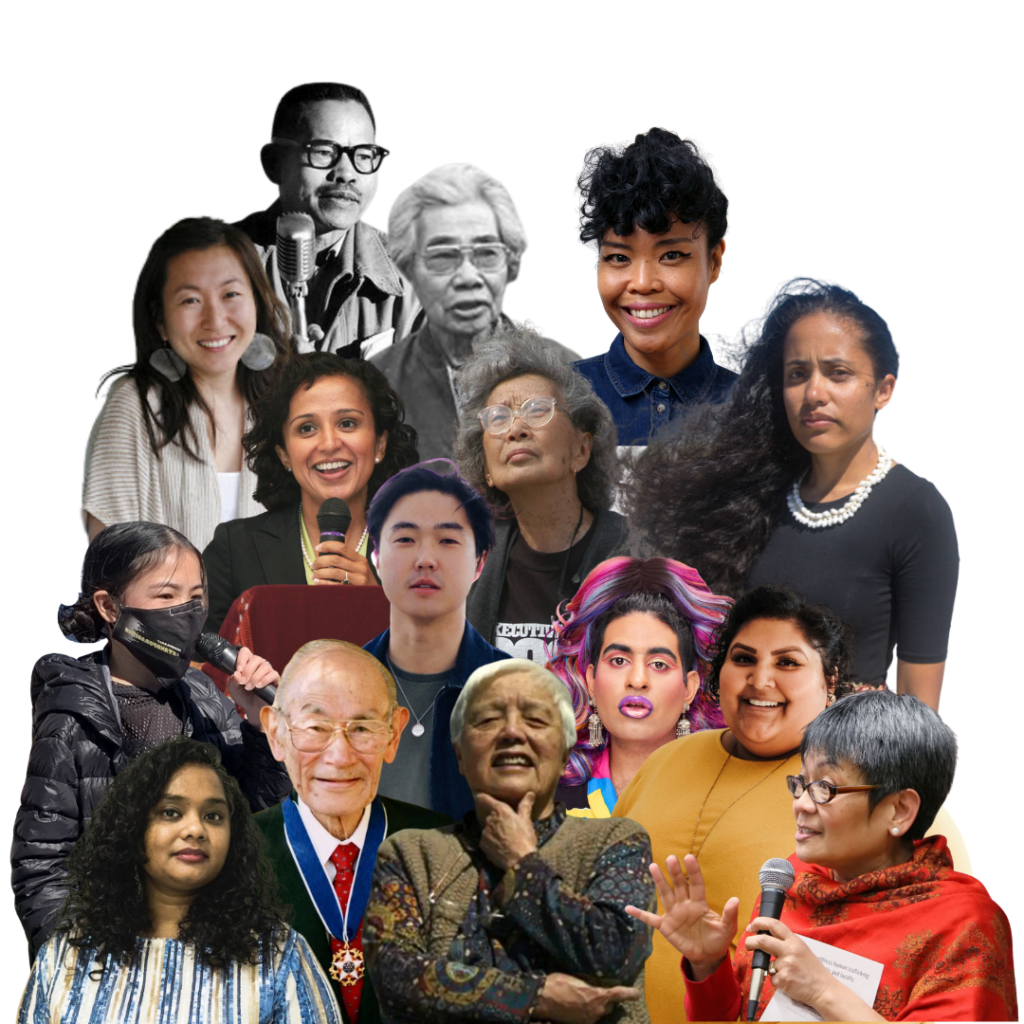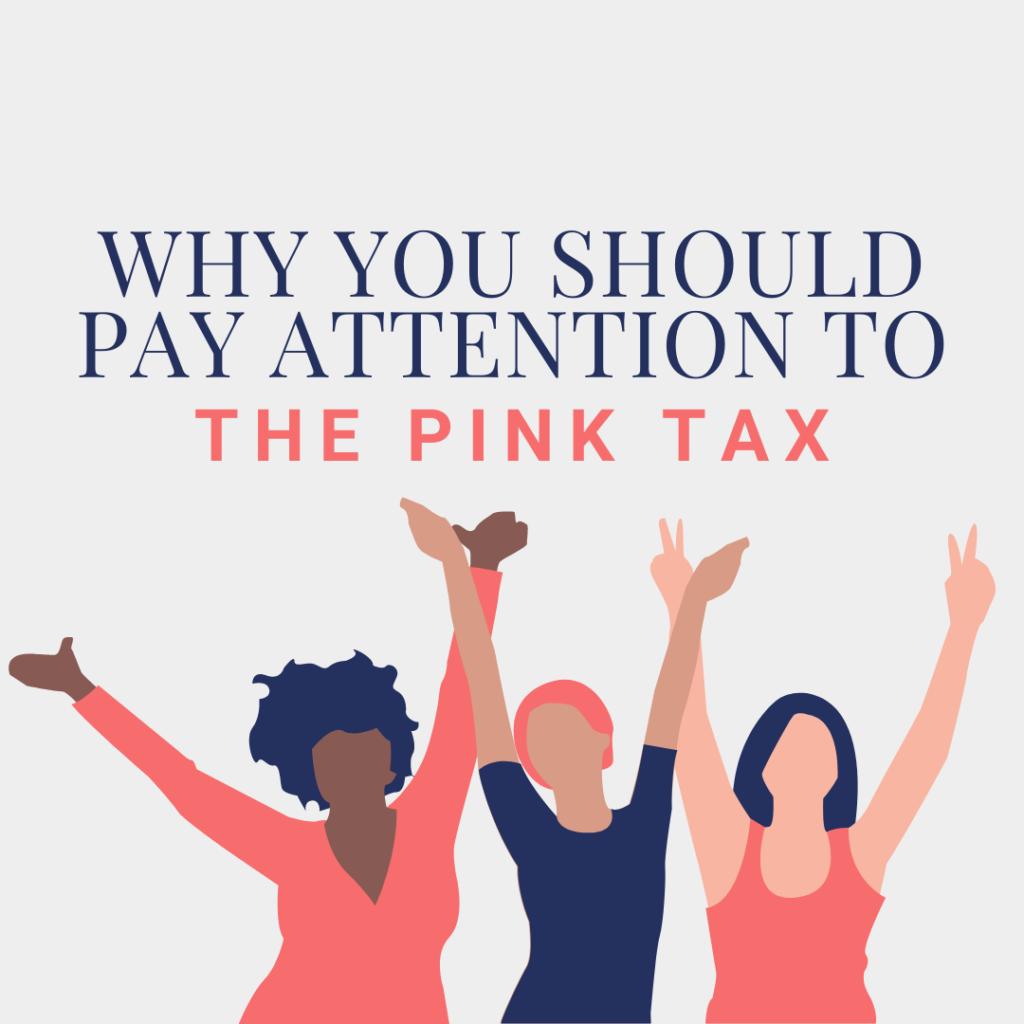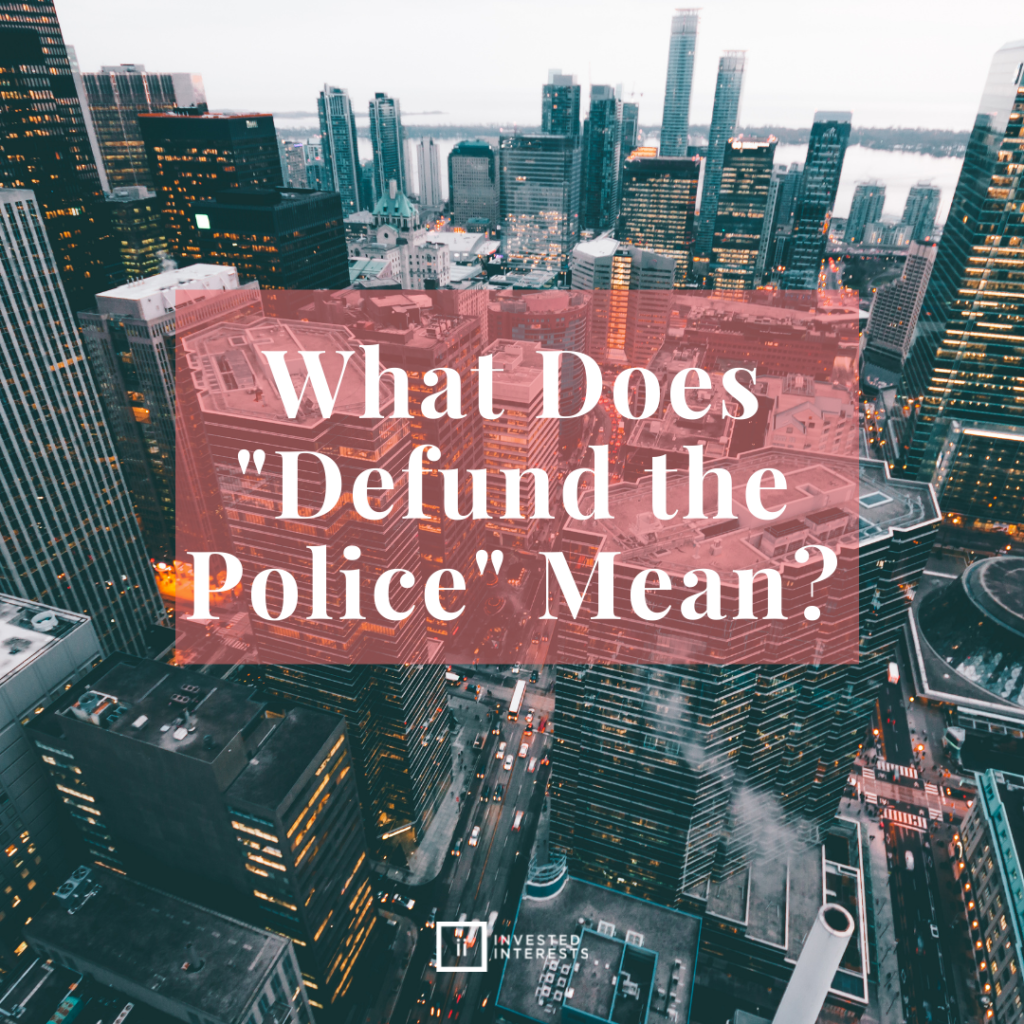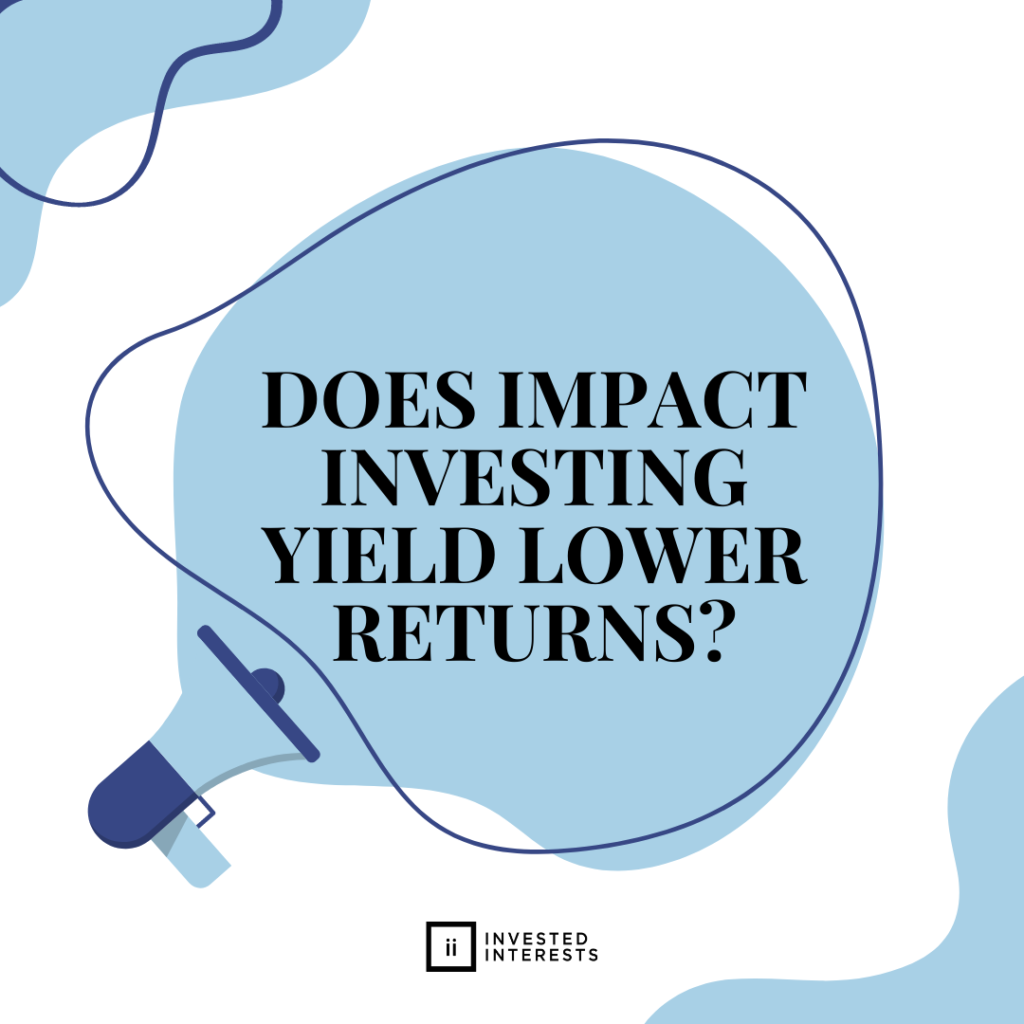Asian American and Pacific Islander Activists have been central to American History. However, their stories too often go untold. Here are a few of the many AAPI activists who changed the world.
Grace Lee Boggs was an influential anti-war, anti-capitalist labor activist in Detroit. She co-founded the Detroit Asian Political Alliance to protest the Vietnam War and fight Asian marginalization. She also wrote several influential books including Revolution and Evolution in the Twentieth Century.
“Love isn’t about what we did yesterday; it’s about what we do today and tomorrow and the day after”
Yuri Kochiyama dedicated her life to human rights and social change. As a young woman, Kochiyama and her family were detained in a concentration camp in Arkansas for two years. After her release, she participated in the Asian American, Black, and Third World movements, where she befriended activist, Malcolm X.
“I don’t think there will ever be a time when people will stop wanting to bring about change.”
As Filipino-American labor organizer, Larry Itliong fought for better working conditions for agricultural workers. In 1965, Itliong led the Delano grape strike that would inspire Cesar Chavez and thousands of farmworker families to create the nation’s pioneering agricultural labor union, the United Farm Workers.
“Because in that Constitution, it said that everybody has equal rights and justice. You’ve got to make that come about. They are not going to give it to you.”
Philip Vera Cruz was also an integral leader in the Delano Grape Strike. In 2013, the New Haven Unified School District named a middle school Itliong-Vera Cruz Middle School in honor of Vera Cruz and Larry Itliong; this school is the first school in the United States to be named after Filipino Americans.
“My life within the union, my life now outside the union, are all one: my continual struggle to improve my life and the lives of my fellow workers. But our struggle never stops.”
At 23 years old, Fred Korematsu was convicted for refusal to comply with Execute Order 9066, which forced all Japanese Americans into concentration camps for the duration of WWII. Korematsu brought his case to the Supreme Court, where, in a 6-3 decision, his conviction was upheld. The Supreme Court never overturned the ruling.
“If you have the feeling that something is wrong, don’t be afraid to speak up.”
Throughout the 1970s and 80s, Velma Veloria was active in the anti-war and Asian American student movements. In 1991, Veloria was the first Filipino American as well as the first Asian American woman to be elected to the Washington State Legislature.
“I decided I would go into politics to make this country my home.”
As a garment worker in San Francisco’s Chinatown, Sue Ko Lee helped lead a strike for better working conditions at the National Dollar Store. In 1938, a successful union election was won for better wages.
“The strike was the best thing that ever happened. It changed our lives.”
Alok is a gender non-conforming world-renowned writer, performance artist and LGBTQIA+ rights advocate. They use poetry, prose, comedy, performance, fashion design, and portraiture to explore themes of gender, race, trauma, belonging, and the human condition.
“We have been taught to fear the very things that have the potential to set us free”
Kathy Jetn̄il-Kijiner is a poet and activist. She co-founded Jo-Jikum, a youth environmental non-profit that seeks to educate others on climate change.
“We deserve to do more than survive. We deserve to thrive.”
Reanne Estrada is an artist. As co-founder of Public Matters, an L.A.-based creative studio for civic engagement, she and her team tackle major factors affecting our everyday lives while employing creative, community-driven approaches to activism.
“What we’re trying to do is make more hospitable environments for artists and artistic practice out in the world.”
William Yu, the creator of #StarringJohnCho, uses his Photoshop skills to bring attention to Asian representation in media. By replacing white actors with John Cho, he’s helping us visualize a world where more than 1% of Hollywood lead roles are played by Asian actors.
“At the core of all this change is an urgent need to not just critique the culture I live in, but to take up space and participate in its growth.”
Thenmozhi Soundararajan is a Dalit-American artist, technologist, and activist who uses her work to organize communities to fight impunity, state violence, anti-blackness, caste apartheid, and religious intolerance.
“It’s the nature of making art today to be engaged – connecting audiences and reproducing that experience in a kind of spiraling process”
Mia Mingus is a writer, educator, disability rights activist, and organizer fighting for transformative justice.
“I am endlessly inspired by the ways everyday people and communities create the world they long for, even in small ways”
Ashlyn So is a 13-year-old fashion designer and self-described “accidental activist.” Through her inspiring designs and activism, So hopes to draw awareness to the recent rise in crimes against Asian Americans and Pacific Islanders.
“I saw what was going on and I knew I had to say something about it.”
Manjusha Kulkarni is the Executive Director of the Asian Pacific Policy and Planning Council (A3PCON) and has worked as a racial justice attorney for over twenty years. In March 2020, she co-founded Stop AAPI Hate, the nation’s leading aggregator of COVID-19-related hate incidents against AAPIs.
“This is not a time that we need bystanders anymore. We need folks to really support us emotionally to, if possible, help challenge what’s going on.”
Sonalee Rashatwar (they/he) LCSW MEd is an award-winning clinical social worker, sex therapist, adjunct lecturer, and grassroots organizer. Popularly known as @TheFatSexTherapist on Instagram, Rashatwar is dismantling whitewashed beauty standards one post at a time.
“Take up space in order to disrupt it.”




